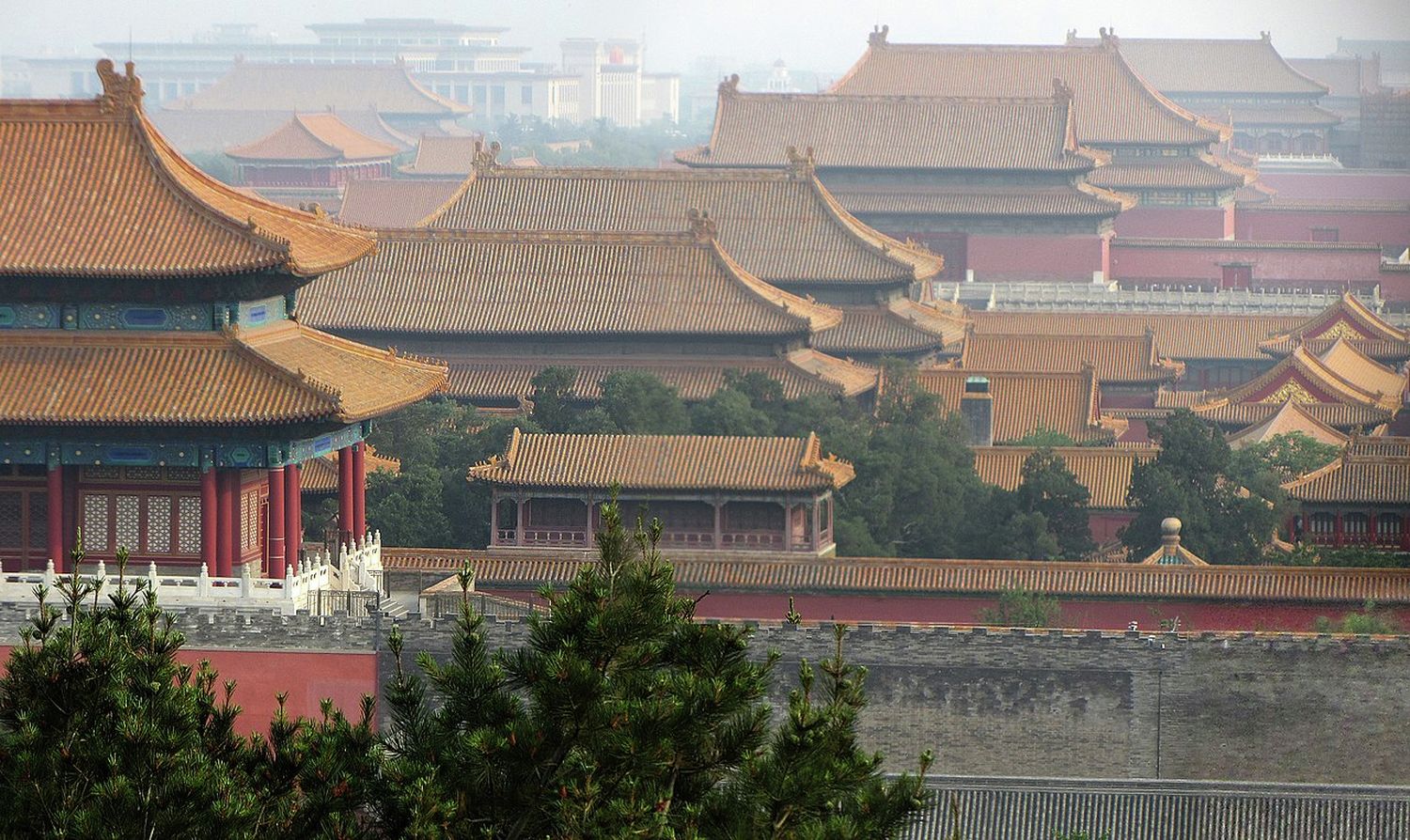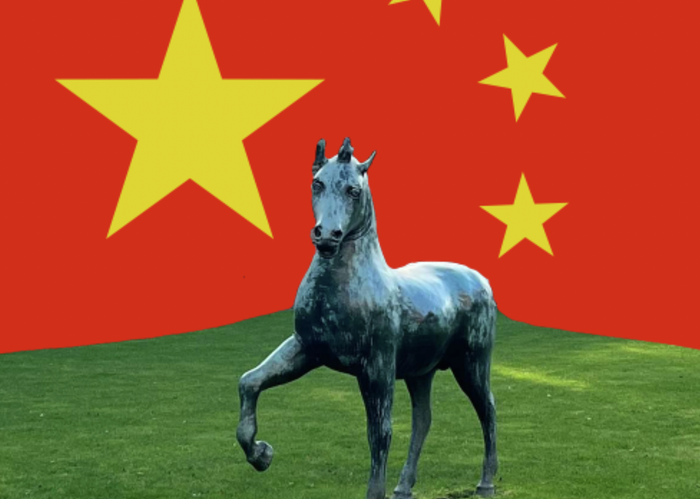Content note: this piece mentions violence, rape, and sexual assault
In early January this year, a short video of an abused woman chained up in a doorless shack went viral on Chinese Tiktok. Later, it was revealed that she was trafficked, battered, repeatedly raped, and had given birth to eight children: seven of them boys, and one single girl.
Her teeth were gone, which was abnormal for a woman who seems to be in her forties, and the abnormality became even more disturbing when it was revealed that not far from the shack in which she was chained up like a dog, there was another woman of similar age who had lost her teeth. Curiously, however, both women seemed to have lost the same set of teeth — the ones someone might use to bite down on a potential rapist.
The fate of the latter women did not go viral. The government only issued statements on the first woman, and, as if wanting to make up for the silence that befell all the other battered, imprisoned, and raped women, they’ve issued not one, but five, statements, each telling a story more elaborate, more convincing, and yet somehow still contradictory than the last.
It was said that the woman is named Xiaohuamei, she was said to be mentally ill, said to be ‘picked up’ by her rapist, named Dong Zhimin, whilst she was homeless (which was later retracted as later statements recognised the fact that she was trafficked). It was said that she and Dong got ‘married’ in 1998 after he bought her, and it was said that she was chained up by Dong after her mental health deteriorated. To make matters significantly worse and more disturbing, in the final (fifth) statement issued by the local government, it was said that Dong has been charged on suspicion of abusing a ‘family member’. The implication of which is that buying a mentally ill woman, ‘marrying’ her, chaining her up and forcing her to have eight children is completely legal in China. Human trafficking, it seems, is completely fine as long as the victim is turned into a ‘family member’ through giving birth to children she probably have never wanted in the first place. It has never been made clearer that in this country, women are so systematically, institutionally, and legally devalued to the extent that they are no longer considered human, but only reproductive means, only wombs.
The lives of women are trampled upon, first by individuals, then by the patriarchal society, and finally by the state who is only too willing to sacrifice the bodies of women.
“Women are so devalued that they are no longer considered human, but only only wombs”
This is a revelation so outrageous that no sane person with a clear conscience could swallow with ease. Millions of Chinese internet users rallied for her on Weibo, the largest social media platform in the country. The top three hashtags about her quickly accumulated more than 10 billion views, dwarfing the ones about the Beijing Winter Olympics. It was a moment of astonishing solidarity, as netizens across the country were roused by her pitiable state. Long-retired investigative journalists ventured deep into Yunnan, the province Xiaohuamei is said to have come from, in seeking to identify the woman; scholars and lawyers dived deep into court document data bases to investigate the dark history of human trafficking in the region; computer scientists used facial recognition AIs to compare the viral video to the leaked marriage certificate in order to ascertain her identity; and two brave young women drove to Feng county on their own volition to give the chained women flowers alongside a card, which says ‘the world did not forget about you, your sisters are on the way’.
As netizens rallied to the cause, however, they began to realise a reality much darker than what they have expected: that the trafficking of women, especially women from disadvantaged backgrounds who suffer from mental health problems, is a systematic and institutional problem in China. It was not only Xiaohuamei and her neighbour, no: as a fieldwork report from 1989 documents, between 1986 and 1989, nearly fifty thousand women were trafficked to Xuzhou, a medium-sized city, alone. Most of these women were severely battered, repeatedly raped, confined at home and forced to give birth to children, hardly any managed to escape captivity, as their ‘husbands’, the husbands’ families, and even entire villages, would exhaust every means to prevent them from getting away. Moreover, despite the widespread deployment of world-class surveillance equipment, human traffickers and their buyers always seemed to have escaped surveillance. And even in cases where arrests were made, the sentence was usually light — in the words of famous Chinese legal scholar Luo Xiang, the maximum sentence for trafficking (and often abusing) women doesn’t even rival that of trafficking a panda, or indeed, a parrot.
“We’re not bystanders, but survivors,” goes a popular social media quip. “We’re not rescuing the chained woman. Instead, she’s rescuing us.”
As if this was not disheartening enough, billions of clicks, compassion, and indignation were only met by a deadly silence.
Why did her mental health deteriorate? We were not told.
Who was her neighbour? We were not told either.
Why did the local government try to deny the possibility of trafficking in the first two statements? Still nothing.
How did she lose so many of her teeth? We were told, ‘it is periodontitis caused by bad hygiene’ — but why did it befall women in this village only? Silence again.
“Amongst the censored hashtags was one that simply says ‘The trafficking of women is a global issue’”
Very soon, the passive silence turned aggressive. The day after the issuing of the fifth statement, the aforementioned report was taken down, records of sentencing on human trafficking cases were likewise erased from the legal database, discussions about her fate were deleted en masse online, and most hashtags were simply banned overnight. Further discussions about the state of human trafficking in general, alongside consideration of the reasons for the extremely imbalanced gender ratio of newborns in certain areas. Most ironically, amongst the censored hashtags was one that simply says ‘The trafficking of women is a global issue’.
The relentlessly aggressive silence then escaped the bounds of the digital sphere. Journalists received calls from local officials, university students who sought to petition on Xiaohuamei’s behalf were disciplined, and the two young women who travelled to Feng County to present Xiaohuamei with flowers and encouragement were detained by local police. After release, both women revealed on Weibo that they were battered and repeatedly interrogated during detention, resulting in post-trauma stress disorder. Today, as of the time I am writing this piece, both women have gone silent again, and it is yet unknown what has befell them: perhaps it was mental strain, or perhaps it was the deadly silence.
As a woman of Chinese descent, I cannot help but feel as if I am straddling two worlds: on the one side of the wall women of a new generation are enjoying the fruits for which generations before them have toiled with their blood and sweat, and on the other side, there remain millions of women whose humanity is being trampled upon, whose voices are not heard, whose faces and names remain in shadows, and whose backs are broken by the boots of individuals, societies, and institutions. And when I say I realised how privileged I am, it is, in fact, a phrase laden with survivor’s guilt. So today, on the occasion of the International Women’s Day, whilst celebrating generations of women’s success and liberation, I would also like to invite you to remember all the struggles that went before us and are happening around us, to remember that the history of women’s liberation is an ongoing one that is written in blood, and, above all, to remember those women who still live in chains.


